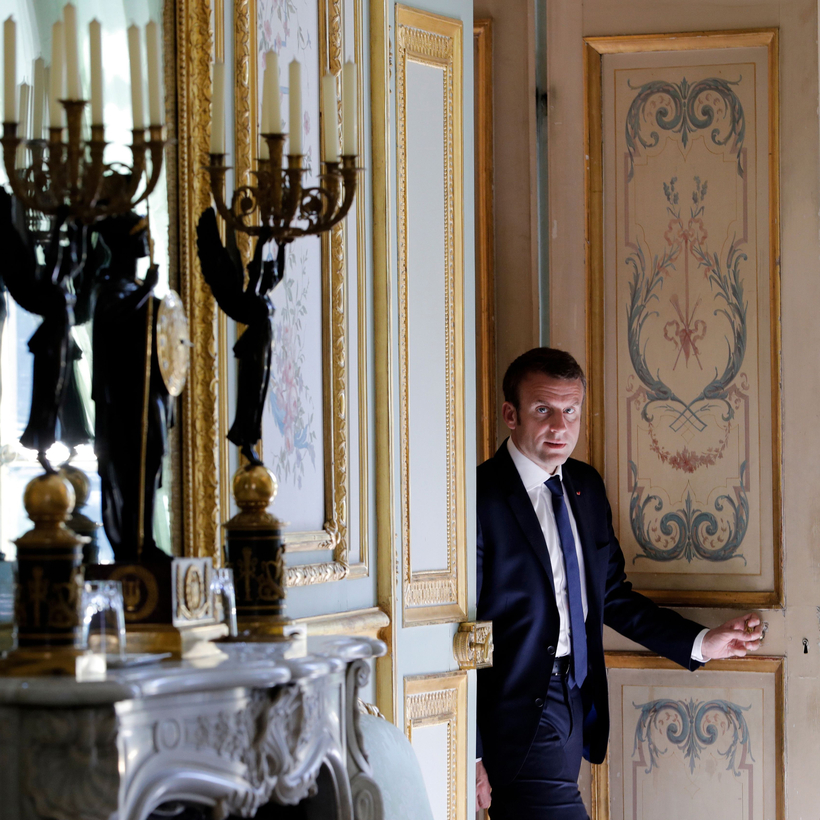For the past two years, I have spent much of my time in Paris getting to know Emmanuel Macron. The youthful French leader, now 42, would invite me occasionally to the Élysée Palace for rambling discussions about France, Europe, and the state of the world, for the purposes of a book I was writing about his turbulent presidency. I had embarked on the book project because I sensed he was a unique figure in the world of global politics, with a penchant for philosophy rather than deal-making. Here was a political neophyte, never before elected to public office, who not only succeeded in his bold gambit to ascend to the highest office in the land but embraced herculean ambitions at the outset of his presidency with the conviction that he could modernize France, invigorate the drive for a more united Europe, and reshape the world order that was crumbling with the abdication of American leadership.
Macron always told me that he was engaged in a race against time, that he feared Europe might not survive the next major crisis unless he and other Continental leaders achieved a dramatic transformation in the ways that France and the European Union were governed. So far, it has been a roller-coaster ride of successes and failures. During one of our conversations about the state of Europe and the world, he seemed to become mired in a pessimistic mood about the magnitude of the challenges he had set for himself. At one point, he muttered the phrase “À quoi bon? À quoi bon?” (What’s the use?) in a way that startled his aides who had joined our meeting. But to Macron’s credit, he has refused to back away from his goals, vowing to continue the fight on all fronts. Now, with the coronavirus ravaging much of France and Europe, he confronts his gravest challenge as he strives to prepare for a post-pandemic world.

